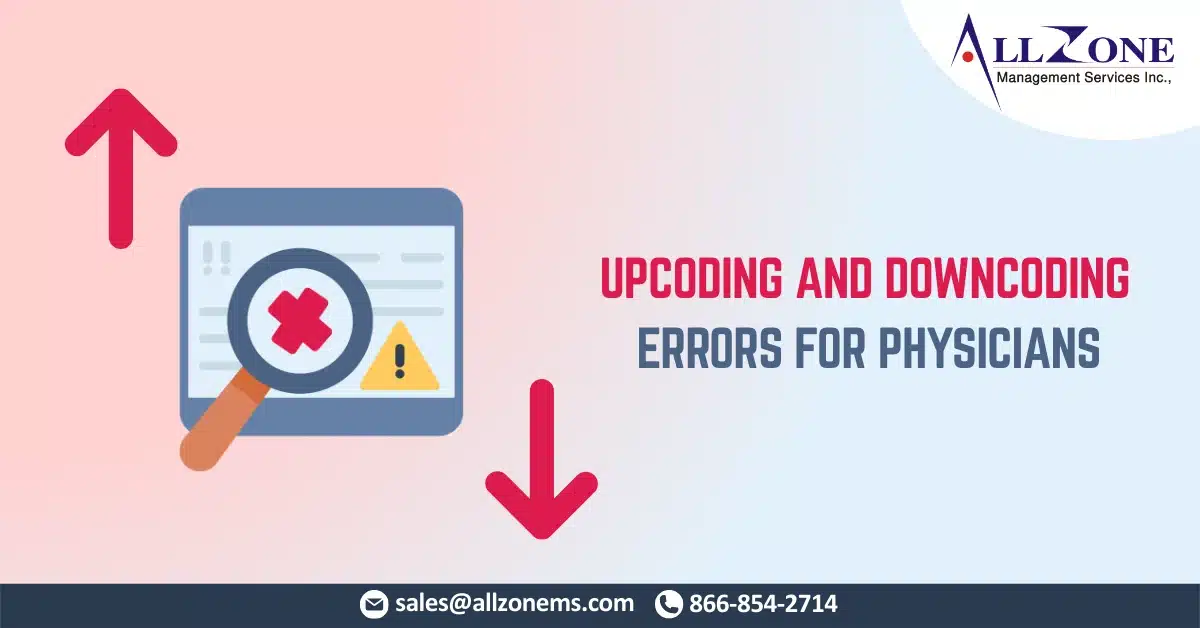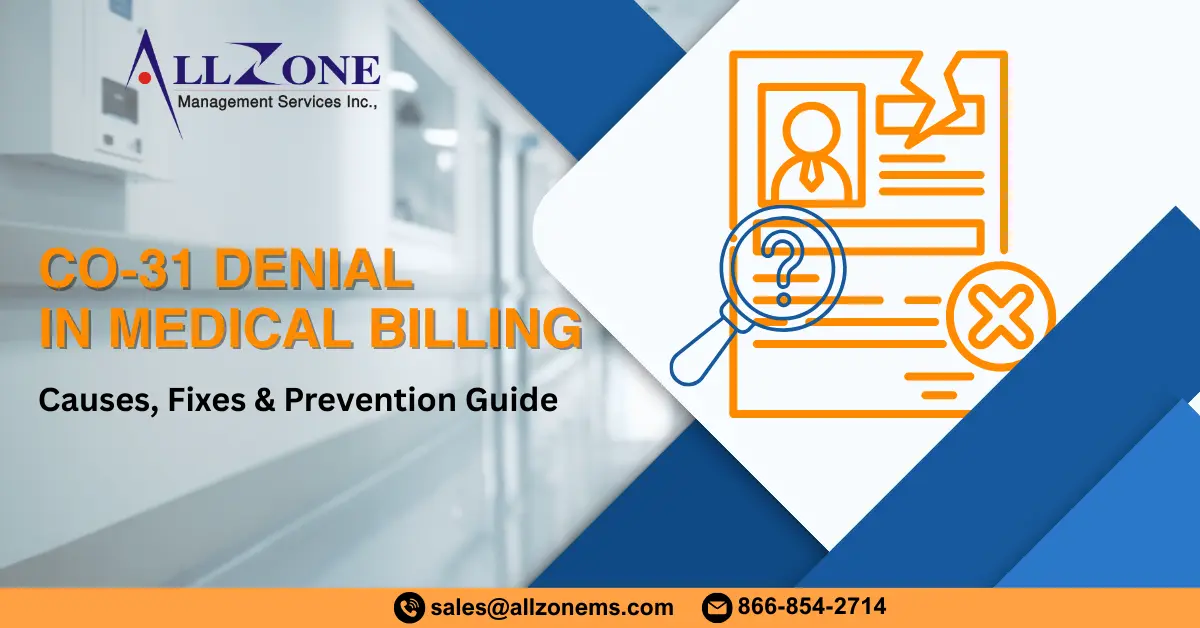In today’s healthcare environment, accuracy is more than a compliance requirement — it is the foundation of trust, financial stability, and quality patient care. Modern healthcare organizations operate in a complex ecosystem of regulations, payer policies, documentation standards, and technology platforms. Within this environment, medical coding plays a critical role in translating patient care into […]
Important Points: The CO-31 denial is one of the easiest claim rejections to avoid in medical billing. Most of the cases are caused by simple mistakes in demographics or eligibility that can be fixed with better front-end processes. Keep in mind: • Check eligibility early • Make sure the patient data is correct • Check […]
In today’s complex healthcare billing environment, patients are increasingly paying out-of-pocket for medical services and later seeking reimbursement from their insurance plans. This shift has made the Direct Member Reimbursement (DMR) form an essential component of the revenue cycle for both patients and healthcare providers. A Direct Member Reimbursement form allows insured members to request […]
Procedure modifiers play a crucial role in medical billing by providing additional information about performed services. Accurate use of these modifiers ensures appropriate reimbursement, reduces claim denials, and maintains compliance with payer policies. This blog breaks down key procedure modifiers, their appropriate usage, common pitfalls, and best practices for medical billers. Modifier 59 – Distinct […]
In the complex world of medical billing, claim denials are one of the biggest challenges healthcare providers face. Among them, CO-97 denial code is one of the most frequent and confusing denials providers encounter. A denied claim not only disrupts cash flow but also leads to additional administrative costs and potential compliance risks. To minimize […]
In the complex world of medical billing, accuracy is paramount. One of the most critical components in ensuring precise documentation and reimbursement is the correct use of Modifiers RT and LT. These modifiers are essential in reporting procedures performed on specific anatomical sites and can significantly impact claims processing, denial prevention, and overall revenue cycle […]
Vitamin D plays a vital role in maintaining healthy bones, supporting the immune system, and regulating calcium absorption. However, deficiencies in this essential nutrient are common worldwide, often leading to fatigue, bone pain, muscle weakness, and long-term complications like osteoporosis. For healthcare providers, accurately documenting and coding vitamin D deficiency is essential not only for […]
Accurate medical billing is the backbone of any successful healthcare practice. Even the smallest error in coding or modifier usage can lead to denials, payment delays, or compliance issues. Two important modifiers that play a critical role in drug and biological billing are JW Modifier and JZ Modifier. Understanding when and how to use them […]
In the ever-evolving world of healthcare finance, Accounts Receivable (AR) management has taken center stage. As we step into 2025, AR teams face mounting pressure from rising claim denials, increased patient responsibility, frequent payer policy shifts, and workforce challenges. These dynamics have forced provider organizations to rethink how they manage AR—striving for efficiency, accuracy, and […]
In the complex world of medical billing and coding, modifiers play a crucial role in ensuring claims are processed accurately and providers are reimbursed correctly. One such modifier that often causes confusion is the KX Modifier. Knowing when and how to use this modifier can make a significant difference in compliance, reimbursement, and avoiding denials. […]










